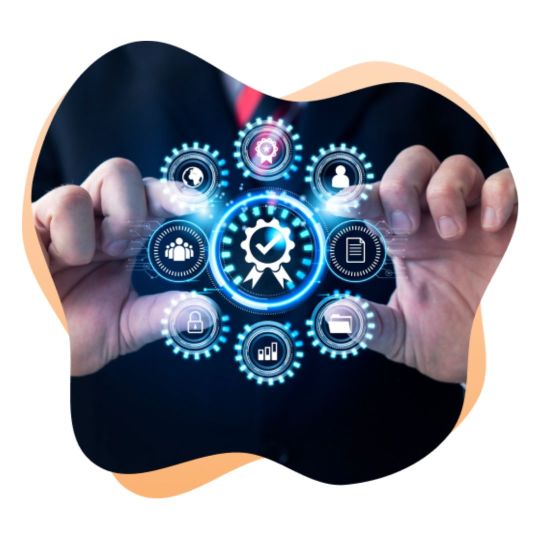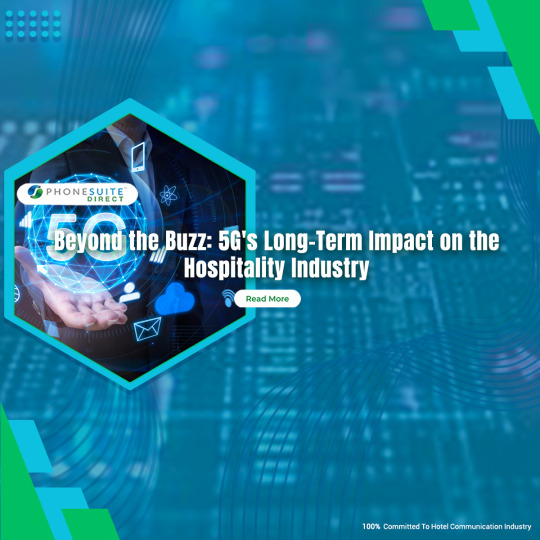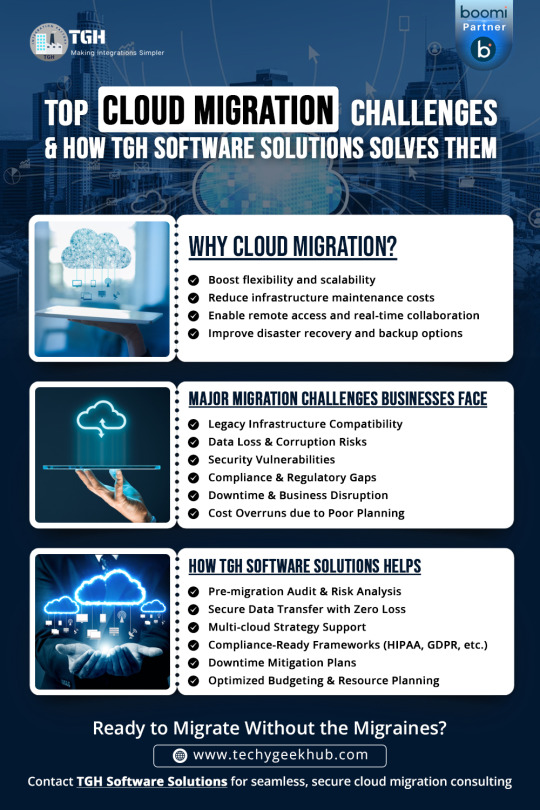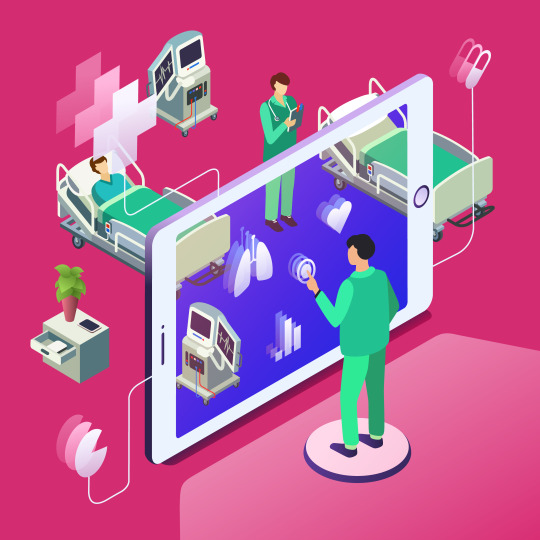#cloud integration services
Explore tagged Tumblr posts
Text
Cloud Integration Services.

Utilize Astute cloud integration services to integrate your on-premises or SaaS apps with your data and applications.
1 note
·
View note
Text

Boomi and AI: Two Sides of the Same Coin
AI is no longer just a buzzword—it's the driving force behind how we work, sell, and innovate. But AI’s real power is only unlocked when it’s grounded in the right data and embedded into workflows. That’s where Boomi steps in.
At TGH , we see Boomi and AI as complementary forces. Boomi acts as the AI orchestrator—connecting systems, automating workflows, and grounding GenAI with real-time, context-rich data.
With the launch of Boomi AI Agents like DesignGen, Scribe, and Pathfinder, businesses can now automate process design, documentation, and integration recommendations effortlessly. Boomi also supports partner and user-created AI agents, making the platform highly extensible.
Explore: TGH Integration Capabilities
Let’s talk about how TGH can help your enterprise integrate smarter, faster, and more intelligently—with Boomi + AI at the core.
#tgh#boomi ai agent#digital transformation#boomi#boomi software#cloud integration services#boomi data integration#boomi integration services#boomi partner#api management solutions
1 note
·
View note
Text
IIoT Platforms: Changing Logistics and Transportation
Modern IIoT solutions can help you optimize logistics and transportation operations. These technologies optimize route planning, reduce downtime, and increase fleet management by integrating real-time data, predictive analytics, and seamless communication. Use IIoT to run more efficient and dependable operations and keep up with the lightning-fast logistics sector. Get in touch with us right away if you want to find out how our IIoT solutions may revolutionize your company. 501-443-3555 or [email protected] Check out https://ip3things.com/iot-platform
0 notes
Text
Cloud integration is essential for businesses looking to enhance operational efficiency and scalability. By integrating cloud and on-premises systems through APIs and iPaaS, organizations can ensure data consistency, automate processes, and streamline workflows, enabling a more seamless operation.
#cloud integration services#data integration#application integration#cloud automation#cloud APIs#iPaaS#cloud middleware#business scalability#cloud data consistency#cloud workflows
0 notes
Text

5G technology can offer advantages that have the potential to revolutionize the hotel landscape. Let’s take some time to dive deeper into how and why this next-generation wireless technology could have major implications for your business. Read More...
#voip technology#business phones#5G Technology#5G Network#Cloud technology#pbx system#voip advantages#phonesuite direct#voip phone#hotel hospitality#phonesuite dealers#hotel phone system#pbx communications#VoIP Protocol#SIP Protocol#Pms integration#Call Booking#Hotel Technology#Cloud Reservation System#Hotel industry#Business phones#Cloud-based#cloud based#Voip Service#Caller ID
2 notes
·
View notes
Text

ITTStar cloud experts deliver strategic consulting for modernization, integration, governance, and application strategy to maximize cloud benefits.
2 notes
·
View notes
Text
Cloud Storage Solutions: Which One is Right for You?
Introduction
Reliable cloud storage is a must in today’s digital era. Whether you’re a business owner, a student, or someone who loves taking photos, choosing the right cloud storage solution can make a huge difference. It can be difficult to determine which option is best for you given the vast array of choices. In this article, we’ll break down some of the top cloud storage solutions to help you make an informed decision.
#affordable cloud storage#Amazon Drive advantages#Apple iCloud storage#best cloud storage#cloud storage comparison#cloud storage for businesses#cloud storage for photos#cloud storage integration#cloud storage security#cloud storage solutions#cloud storage user experience#Dropbox benefits#free cloud storage options#Google Drive features#Google Drive vs Dropbox#how to choose cloud storage#Microsoft OneDrive review#OneDrive vs iCloud#secure cloud storage#top cloud storage services#software solutions
2 notes
·
View notes
Text

This blog post will give you an in-depth look at everything from API integration to connecting your switch with channel management systems, streamlining the operations performance of the hotel business. Learn More...
#API Integration#hotel integration#VoIP#voip services#voip technology#voip system#voip solutions#business voip#voip phone#VoIP Protocol#unified communications#cloud technology#hotel phone installation#ip telephony#phonesuite pbx#SIP Protocol#Call booking#hotel hospitality#hotel pbx#Call center#Hotel hospitality#Business voip#VoIP system#Voip service
2 notes
·
View notes
Text
#salesforce development solutions#salesforce marketing cloud developer#salesforce integration services#salesforce managed services#salesforce development services
2 notes
·
View notes
Text
Upgrading Operations: A Deep Dive into Sigzen Technologie’s Cutting-Edge Data Center Services
In the swiftly advancing realm of technology, where the significance of data is unparalleled, businesses consistently pursue resilient solutions for effective data management. Data Center Services have emerged as integral components for modern enterprises, serving as a cornerstone for seamless operations, robust security, and scalable infrastructure. In this thorough exploration,as we dive into…

View On WordPress
#API Management#Business Security Solutions#Cloud Integration#Data Center Services#Data Driven Future#Data Management#Future Ready Solutions
2 notes
·
View notes
Text

Top Cloud Migration Challenges & How TGH Software Solutions Solves Them
Migrating to the cloud can unlock unmatched scalability, flexibility, and cost-efficiency—but it’s not without its challenges. This infographic explores common cloud migration obstacles and how TGH Software Solutions ensures a seamless, secure transition.
0 notes
Text
The Top Choice: Oracle Enterprise Resource Planning Cloud Service for Your Business Success
Are you searching for the best solution to streamline your business operations? Look no further than the Top Choice: Oracle Enterprise Resource Planning (ERP) Cloud Service. In today's fast-paced business world, organizations need a robust ERP solution to optimize their processes, enhance productivity, and drive growth. Oracle ERP Cloud Service, crowned as the best in the industry, offers a comprehensive suite of tools designed to meet the demands of modern businesses.
Why Choose the Best: Oracle Enterprise Resource Planning Cloud Service?
Oracle ERP Cloud Service stands out as the Best Option for businesses across various industries. Here's why:
Scalability: Easily scale your ERP system as your business grows, always ensuring seamless operations.
Integration: Integrate ERP with other Oracle Cloud services for a unified business platform.
Real-time Insights: Gain valuable insights into your business with real-time analytics, enabling data-driven decision-making.
Security: Rest easy knowing your data is secure with Oracle's advanced security features.
Frequently Asked Questions about the Best Choice: Oracle ERP Cloud Service
Q1: What modules are included in Oracle ERP Cloud Service?
A1: Oracle ERP Cloud Service includes modules for financial management, procurement, project management, supply chain management, and more. Each module is designed to optimize specific aspects of your business.
Q2: Is Oracle ERP Cloud Service suitable for small businesses?
A2: Yes, Oracle ERP Cloud Service is scalable and can be tailored to meet the needs of small, medium, and large businesses. It offers flexible solutions suitable for businesses of all sizes.
Q3: How does Oracle ERP Cloud Service enhance collaboration among teams?
A3: Oracle ERP Cloud Service provides collaborative tools that enable teams to work together seamlessly. Features like shared calendars, document management, and task tracking enhance communication and collaboration.
Conclusion: Empower Your Business with the Best ERP Solution
Oracle Enterprise Resource Planning Cloud Service is not just a choice; it's the Ultimate Solution for businesses seeking to optimize their operations. By harnessing the power of Oracle ERP, you can streamline processes, improve efficiency, and drive innovation. Don't let outdated systems hold your business back. Embrace the future with Oracle ERP Cloud Service and propel your business to new heights.
Ready to transform your business? Contact us today to explore the endless possibilities with the best ERP solution on the market.
#oracle#oracle erp#rapidflow#oracle erp cloud service#best erp solution#oracle erp service providers#business#business automation#oracle services#enterprise software#scalability#integration#rpa#market#erp
3 notes
·
View notes
Text
GetOnCRM: Your Strategic Partner for Salesforce & Informatica Data Integration
GetOnCRM Solutions supports businesses with Salesforce CRM implementation and Informatica integration for reliable, compliant, and scalable data management. From CRM setup to data pipelines, governance, and industry-specific solutions, GetOnCRM helps organizations manage customer information more efficiently and securely.
#Salesforce CRM#Informatica Integration#Salesforce Data Cloud#GetOnCRM Solutions#Data Governance Services#Salesforce Partner#CRM Implementation#Informatica Salesforce Services#Customer Data Management#Business Data Integration
0 notes
Text
The Rise of Online Hospital Management Systems

In the fast-evolving world of modern medicine, technology has become an indispensable ally. One of the most transformative innovations in recent years is the Online Hospital Management System. As hospitals and healthcare providers around the globe grapple with the challenges of efficiency, patient safety, data management, and regulatory compliance, this digital solution has emerged as a powerful force driving operational change.
According to a 2024 report by Global Market Insights, the hospital management software market is expected to surpass USD 80 billion by 2030, showcasing the global healthcare industry's urgent demand for smarter, tech-enabled infrastructure. From improving day-to-day hospital workflows to revolutionizing how care is delivered and managed, an online hospital management system is no longer a futuristic tool — it's a present-day necessity.
This article will walk you through the features, benefits, and impact of online hospital management systems and how they fit into the broader landscape of Healthcare Software Services and hospital information systems.
What is an Online Hospital Management System?
An Online Hospital Management System (HMS) is a cloud-based or web-enabled digital platform designed to automate and streamline the administrative, clinical, and financial activities of a hospital. Unlike traditional, paper-based or desktop hospital systems, online HMS tools are accessible from anywhere via the internet, enabling real-time collaboration between departments and seamless access to patient information.
At its core, an HMS serves as the backbone of hospital operations. It typically includes integrated modules for:
Patient Registration and Admission
Electronic Medical Records (EMR/EHR)
Appointment Scheduling
Billing and Invoicing
Pharmacy and Inventory Management
Laboratory and Diagnostic Services
Human Resource and Staff Management
Because it's hosted on the cloud, an online HMS offers robust data backups, regular updates, and enhanced security — a major plus for healthcare institutions handling sensitive patient data.
Core Features That Drive Adoption Globally
The rise of online hospital management systems has been driven by a combination of advanced features and changing expectations in healthcare. Let’s look at the must-have capabilities that make these systems essential:
Electronic Health Records (EHR) Integration
One of the most crucial components of any HMS is its EHR module. With EHRs, hospitals can digitize patient charts, lab reports, radiology images, prescriptions, and treatment plans. This ensures:
Easy retrieval of patient history
Reduced medication errors
Real-time updates across departments
Streamlined insurance and billing documentation
Billing and Insurance Automation
Managing billing manually is time-consuming and error-prone. HMS systems automate billing processes by integrating treatment records, lab services, room charges, and medication data. They also:
Track patient payments and outstanding balances
Support multiple payment modes (cash, card, insurance)
Generate instant invoices and financial reports
Integrate with insurance portals for faster claims
Appointment and Scheduling Management
A cloud-based scheduling tool lets patients book appointments online, while doctors and hospital staff can manage their availability more effectively. Benefits include:
Reduced waiting times
Improved patient satisfaction
Smart allocation of resources
SMS and email reminders for patients
Pharmacy & Inventory Control
HMS tools can maintain a digital record of medicines and supplies. Hospitals can monitor:
Stock levels and expiry dates
Reorder alerts
Vendor management
Billing integration with pharmacy data
This minimizes wastage and ensures continuous supply of critical medications.
Telemedicine Support
Modern HMS platforms are often equipped with telemedicine functionality. Through video consultations, secure chat, and e-prescriptions, doctors can offer remote care services — especially useful during emergencies or in rural areas.
Role-Based Access and User Permissions
Security is paramount in healthcare. An HMS allows user-based role assignments. Doctors, nurses, administrators, and patients access only what they’re authorized to. This reduces misuse, ensures accountability, and supports regulatory compliance.
Benefits of Adopting an Online Hospital Management System
A successful HMS implementation impacts every layer of a hospital’s operation. From the front desk to the ICU, benefits ripple across departments.
Improved Patient Experience
With features like online registration, appointment booking, and instant access to medical history, patients enjoy faster and smoother interactions. Timely communication (e.g., appointment reminders) enhances trust and satisfaction.
Increased Operational Efficiency
An online HMS reduces manual work, automates repetitive tasks, and simplifies data entry — giving healthcare workers more time to focus on patients rather than paperwork.
Real-Time Reporting and Analytics
Administrators and doctors can pull real-time reports on occupancy, financial performance, disease trends, staff productivity, and more. Data-driven insights lead to smarter decisions.
Cost Savings Over Time
Though there's an initial investment, an online system eliminates many hidden costs:
Paper and printing expenses
Staff overtime for manual record-keeping
Revenue leaks from billing errors
Compliance fines due to incomplete documentation
Reduction in Human Errors
With features like auto-populated fields, standard templates, and alerts for missing data, HMS significantly cuts down on:
Medication errors
Duplicated records
Unbilled procedures
Real-World Use Cases: How Hospitals Are Benefiting
Multi-Specialty Hospitals
Large hospitals benefit from seamless coordination across OPD, IPD, pharmacy, and labs. Online HMS ensures smooth patient flow and central data access.
Rural Health Centers
With internet connectivity and mobile devices, remote clinics can deliver expert care via telemedicine and access cloud-based patient data.
Diagnostic Laboratories
Labs can integrate their test equipment with HMS to upload results directly into patient records. It also automates report delivery and payment.
Private Clinics
Smaller facilities use online HMS for managing appointments, prescriptions, and billing with minimal staff, helping them operate efficiently.
Table: Real-World Impact Metrics
Hospital TypeKey Benefit AchievedEfficiency GainMulti-specialtyIntegrated patient management40% reduction in admin workRural health centerRemote patient care via telehealth60% patient reach expansionDiagnostic labAutomated report generation80% faster TAT (Turnaround Time)Private clinicStreamlined appointments & billing50% improvement in scheduling accuracy
Integrating with Other Healthcare Software Services
One of the greatest advantages of modern HMS platforms is their ability to integrate seamlessly with other Healthcare Software Services. These integrations improve interoperability, streamline data exchange, and create a unified digital ecosystem.
Telemedicine Platforms
By integrating telemedicine tools, hospitals can expand their reach and offer remote consultations. This enables:
Secure video calls
Digital prescriptions
Integration of consultation records into the HMS
Laboratory Information Systems (LIS)
When LIS is connected, lab results can be auto-uploaded into patient records. It helps doctors access timely, accurate diagnostics.
Radiology Information Systems (RIS)
RIS integration ensures that imaging reports and scans are linked directly to the patient file, reducing dependency on printed films.
Mobile Health Applications
Patients can use apps to book appointments, access prescriptions, view lab reports, and get health alerts, all connected to the HMS backend.
These integrations are made possible through APIs, HL7 standards, or custom development and allow for highly customizable solutions tailored to each hospital’s needs.
Key Challenges and Considerations Before Implementation
Despite the many benefits, adopting an online HMS isn’t plug-and-play. Hospitals must navigate several hurdles:
Cost and Budgeting
Initial setup — including software purchase, infrastructure, training, and migration — can be expensive. However, cloud models with subscription pricing make it more affordable for small and mid-sized facilities.
Data Migration from Legacy Systems
Hospitals with decades of paper or on-premise digital records face data transfer challenges. Proper planning, testing, and pilot runs are essential.
Training and Change Management
Employees may resist change or find the new system difficult to use. Continuous training, user-friendly interfaces, and internal champions can ease adoption.
Cybersecurity and Compliance
Data breaches in healthcare are serious. Hospitals must ensure encryption, secure access controls, and compliance with regulations like HIPAA, GDPR, or local health data laws.
Vendor Reliability and Support
The quality of customer support, product updates, customization capabilities, and post-launch assistance should be a key factor in vendor selection.
Future of Online Hospital Management Systems
The HMS space continues to evolve with emerging technologies shaping the next generation of digital hospitals:
Artificial Intelligence (AI)
AI tools can analyze vast health data to support clinical decisions, predict disease outbreaks, and optimize staffing levels.
Blockchain Technology
Blockchain can offer tamper-proof records and enhance data sharing between healthcare providers without compromising security.
Voice-Based and NLP Interfaces
Voice commands and natural language processing (NLP) can help clinicians input notes or retrieve patient data hands-free.
Personalized Patient Engagement
Systems will increasingly include features for:
Chatbots for appointment scheduling
AI-based reminders
Real-time treatment tracking via mobile apps
IoT and Remote Monitoring
Wearables and connected devices can feed real-time vitals into HMS, allowing early intervention and better chronic disease management.
Conclusion: Embracing the Hospital of the Future
The digital revolution in healthcare is no longer a prediction — it's unfolding before our eyes. Adopting an Online Hospital Management System is now essential for hospitals striving to remain competitive, patient-centered, and operationally efficient.
From managing appointments to monitoring chronic illnesses remotely, online HMS platforms have redefined what’s possible in patient care. As they continue to integrate with broader Healthcare Software Services, they become the central nervous system of modern medical institutions.
Looking forward, innovations in AI, blockchain, and smart integrations will elevate the hospital information system to an intelligent care delivery platform. For hospitals that embrace this change early, the benefits — in efficiency, care quality, and patient trust — will be significant.
Ready to explore a tailored hospital management solution? Contact us today for a free consultation or product demo that fits your facility’s unique needs.
#Online Hospital Management System#Hospital Management Software#Healthcare Software Services#Hospital Information System#Cloud-Based HMS#EHR Integration#Medical Software Solutions#Digital Health Systems#Hospital Workflow Automation#Hospital Software UAE#Telemedicine Integration#Patient Management System#Healthcare IT Solutions#Hospital Administration Tools#Modern Healthcare Technology
0 notes
Text

#cloud computing#oracle cloud compartment#oracle cloud#what is cloud computing#what is oracle cloud#why oracle cloud#oracle cloud dba#oracle cloud erp#oracle cloud epm#oracle cloud integration#oracle cloud for telcos#oracle cloud growth#oracle mobile cloud#oracle autonomous cloud#oracle cloud at customer#introduction to oracle cloud#oracle cloud infrastructure compute services#databases in oracle cloud#oracle cloud services#oracle cloud overview#oracle cloud platform#oracle cloud erp tutorials
0 notes